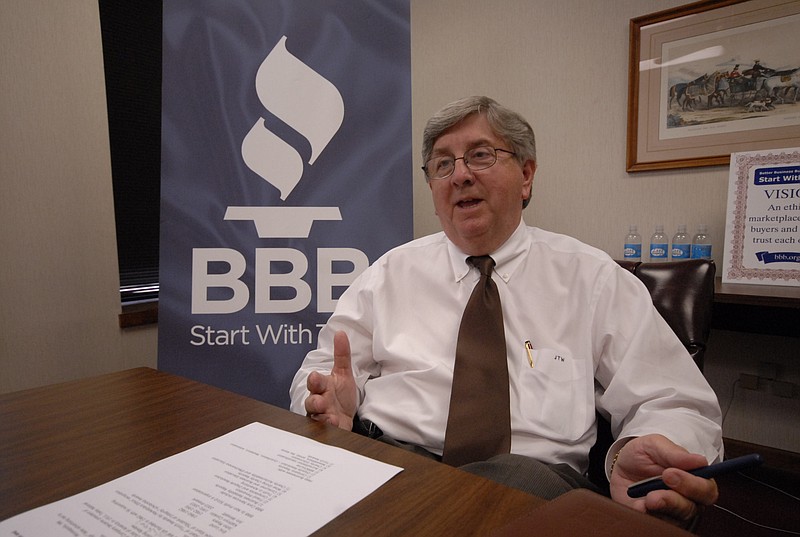Suggestions when sliding
The Better Business Bureau offers the following tips for consumers using credit or debit cards: Block any view of card reader keypads when you enter your PIN number. Also be on the lookout for false keypad overlays which can capture your personal information. If a keypad seems suspicious, cancel your purchase. Some card skimmers look and feel like readers. But they're often placed over legitimate card readers and can be moved if wiggled. If a card reader looks different, check it out and see if it's easily removed. Also beware of new or unusual signage asking for additional card slides or personal information. When possible, avoid ATMs in dimly-lit or low-trafficked areas. The BBB suggests using bank ATMs whenever possible over stand-alone ATMs in public places.It's easy to miss a few small fraudulent charges if you aren't careful. Regularly read through credit and debit card statements and report any activity you don't recognize.If anyone near a gas pump or ATM offers to help you use your card, decline and leave. If you feel uncomfortable with the individual, get somewhere safe and contact authorities.If you see any suspicious or fraudulent activity on your bank statement, report it immediately. The quicker fraud charges are reported, the quicker banks and card companies can correct the problem, reimburse your money and issue a new card.
Myths and misinformation abound when it comes to credit card safety and security. The prevalence of credit card crime (nearly 32 million U.S. cardholders had information stolen in 2014, according to CreditCards.com) has also given rise to widespread fear of fraud or theft.
But experts urge consumers to to be aware of the facts and take proactive steps when it comes to security, instead of drowning in the stories of data breaches and theft.
Jim Winsett, president at the Better Business Bureau in Chattanooga, said recently there are simple and easy steps cardholders can and should take to safeguard their own accounts.
"We need to have some level of awareness of any financial transaction that we're making today," he said.
Winsett said when it comes to gas purchases, the safest way to pay is inside the store, whether with cash, credit or debit.
But if that isn't an option, and you're paying with a card at the gas pump, take a few minutes to ensure the card reader has an unbroken tamper-proof seal in place.
Though retailers in the U.S. are required by law to install more secure EMV (Europay MasterCard Visa) card readers, ATM owners and convenience stores are not required to do so until October 2016 and October 2017, respectively.
Gas pumps and ATMs are therefore prime targets for credit card skimmers, used to copy and steal information from the magnetic strip on the backs of credit and debit cards, because they are unmanned.
Many convenience store companies now place seals near card readers to prevent tampering. If a seal is broken or damaged, Winsett said don't use the machine.
Additionally, if a card reader's seal is broken, consumers should alert a cashier or notify police.
Winsett also suggested cardholders always run gas pump transactions as credit to avoid punching in a PIN number for debit cards.
Contact staff writer Alex Green at agreen@timesfreepress.com or 423-757-6480.
Beware unnecessary upsales
Craig Shearman, vice president of government affairs public relations at the National Retail Federation, warns cardholders to also be wary of products promising greater credit card security or fraud protection. Under U.S. law, credit card customers are liable for a maximum $50 in fraudulent charges on a credit card account. And today, many credit card providers opt to waive even that charge, choosing instead to reimburse customers the full amount lost to fraudulent activity. He warned consumers to look out for third-party fraud protection packages and sales pitches. Also, Shearman said most cards in the U.S. are at no risk of being compromised while tucked away in a wallet or purse. Only a small percentage of cards in the country emit the type of signal which can be used to steal cardholder information when a card isn't in use. He warned consumers to figure out what kind of card they possess before deciding to spend any money purchasing a protective card sleeve or holder.
